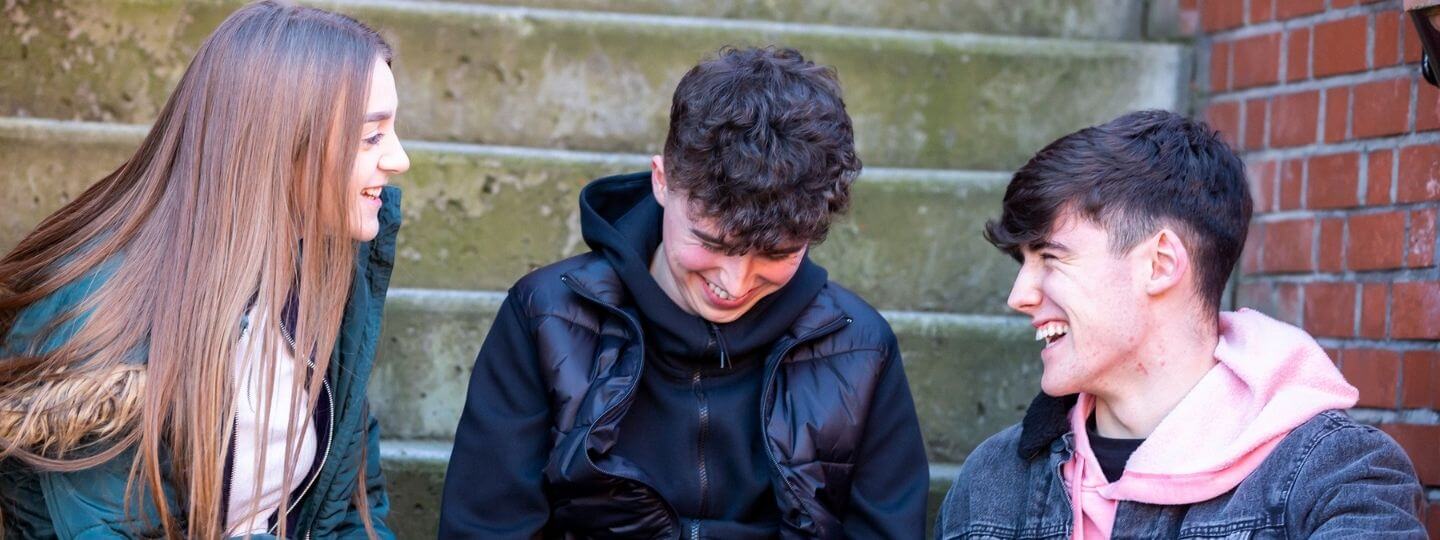Watch as our Jigsaw Volunteers Sam and Rachel discuss the shift in taking personal responsibility when you move away to college.
Category: School
Time spent online
Time spent online and social media are commonly viewed as the root causes of any problem that young people face.
For a lot of us, work and education is tied into a stable internet connection. Digital communication is more important than ever.
When we ask young people how long they spend online, they often refer to this amount as bad or negative. We’re all guilty of mindless scrolling at times, but does that make it bad?
In this article, you will find:
Dealing with change
We face many changes throughout our lives.
We might be finishing primary or secondary school, starting college, or getting a new job. Some of us decide to leave home or even move to a new country.
Change can occur within our families, such as separation, divorce, or the death of a family member. The world itself goes through many changes too. The political, environmental, and social environments are always in flux.
It can also be exciting, daunting, or exhausting. No matter what we feel about it, change is inevitable and can’t be avoided. When we’re finding it difficult, often the problem isn’t the change itself, but how we deal with it.
Exercise and mental health
Let’s face it, we all know that exercise is good for us. ‘Get active’ is one of the five recommended things to do every day to support our mental health.
Some people don’t have any issue going to the gym and fitting in runs. For others, finding the time, energy or motivation to get out of bed, let alone exercise isn’t easy.
Here we will look at exercise and mental health, how they are related and ways to incorporate it into our lives. Think of exercise as any activity that increases your heart rate and breathing.
In this article you’ll find:
Being the best
We live in a competitive world, where comparison is everywhere. It’s often present in school or college, on the sports field or in relation to social status.
There can be a focus on ‘being the best’ when we are ranked and compared to those around us.
At school or in college there is often competition, with exams designed to assess our academic ability. Ratings can be compared to every other person our age in Ireland.
Sports can come with pressure and a focus on winning. Even in non-competitive activities, such as the gym, we are encouraged to try to get a ‘personal best’. We might focus on doing more weights or improving our time, in competition with ourselves to be our best.
Online and on social media, we can usually see how many followers/friends, likes, or comments another person receives. We often compare our social media stats to those of others. Looking at posts and wondering why some got more support than others can become a habit. What stories are we telling ourselves about success and failure?
Feeling happy being single
Being single doesn’t seem like something to celebrate. Relationships are the focus of a lot of the popular culture we consume.
It can also take a period of adjustment if we recently find ourselves single, through a break-up, or ending a relationship.
Our Instagram feeds are filled with snaps of ‘happy couples’ and #relationshipgoals. There’s a mountain of advice on how not to be single. So, you’d be forgiven for thinking everyone in the world is in a relationship except you.
However, that’s not the case. According to the most recent Irish Census, 41% of people over 15 years-old are single. Yet still, we can feel the pressure to ‘couple up’ and this can be challenging.
Feeling pressure
Life can feel full of pressure sometimes. Especially while we figure out who we are, what we want, and how we want our lives to be.
Young people who come to Jigsaw often talk to us about the pressure they’re feeling. Some of the things they feel pressure from include:
- Fitting in – Having to change who they are to be included in a group.
- Supporting friends – Feeling they have to respond to friends’ difficulties, even when it interferes with their own wellbeing.
- Conforming – Falling in with an education system that feels unfair and out of line with everything else in their life.
- Performing well in exams – Comparing results and achievements.
- Competing and doing well in sports or other hobbies – This can be to the point where they no longer enjoy it.
- Future plans – Feeling they should know what career path to choose.
- Fulfilling the expectations of others – Living up to the expectations of parents. Or matching the achievements of siblings.
What is depression?
Depression is a term that is used in many different ways by different people. Commonly, people use the word depression to describe feeling sad, upset, or fed up.
Many of us describe things, such as news stories, as ‘depressing’. We may also describe ourselves as being depressed at different times in our lives and for different lengths of time.
In this article, you will find:
Hearing voices
We know that many young people hear voices or sounds that other people can’t hear. The recent My World Survey found that over one in five adolescents has had this experience.
This can feel frightening or confusing. Particularly with a backdrop of movies and tv programmes that portray hearing voices as ‘crazy’. However, there are many explanations for the phenomenon of hearing voices.
How to support your friend’s mental health
We know that friends turn to each other for support. Friends can often be the first port of call when times are tough.
It can be hard to see friends going through a difficult time and know what you can do for them.














